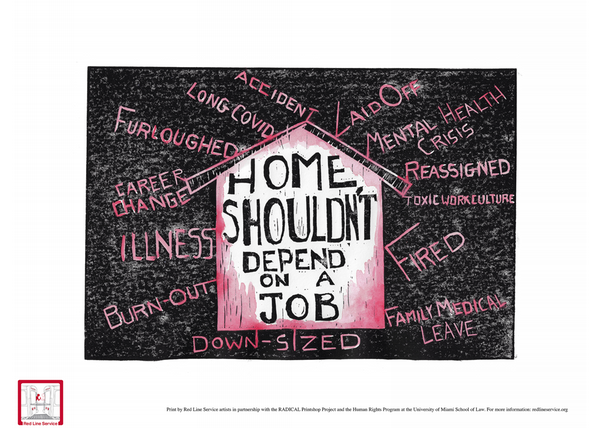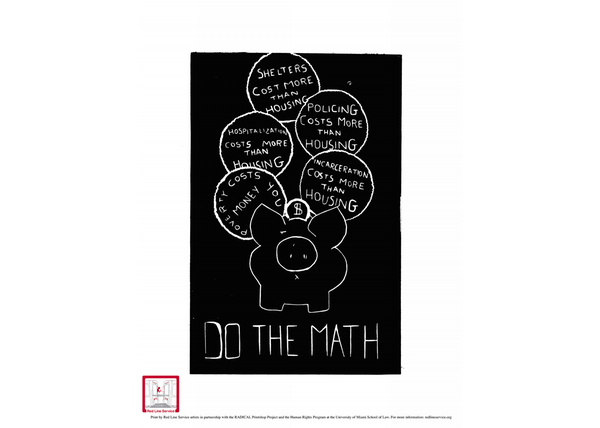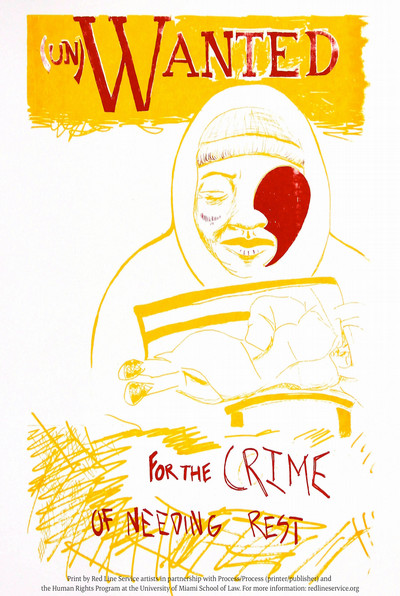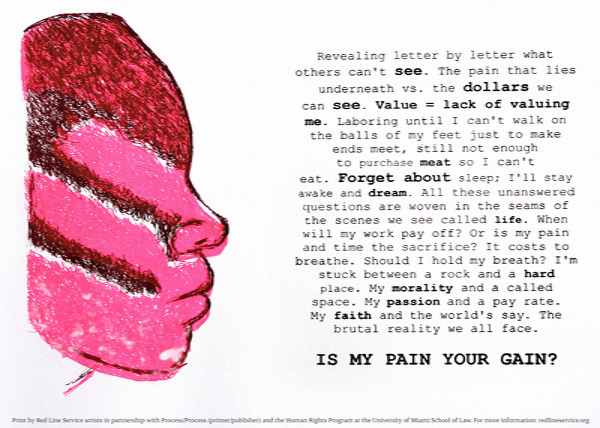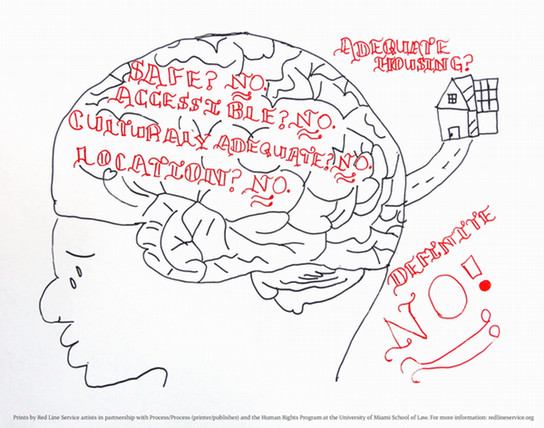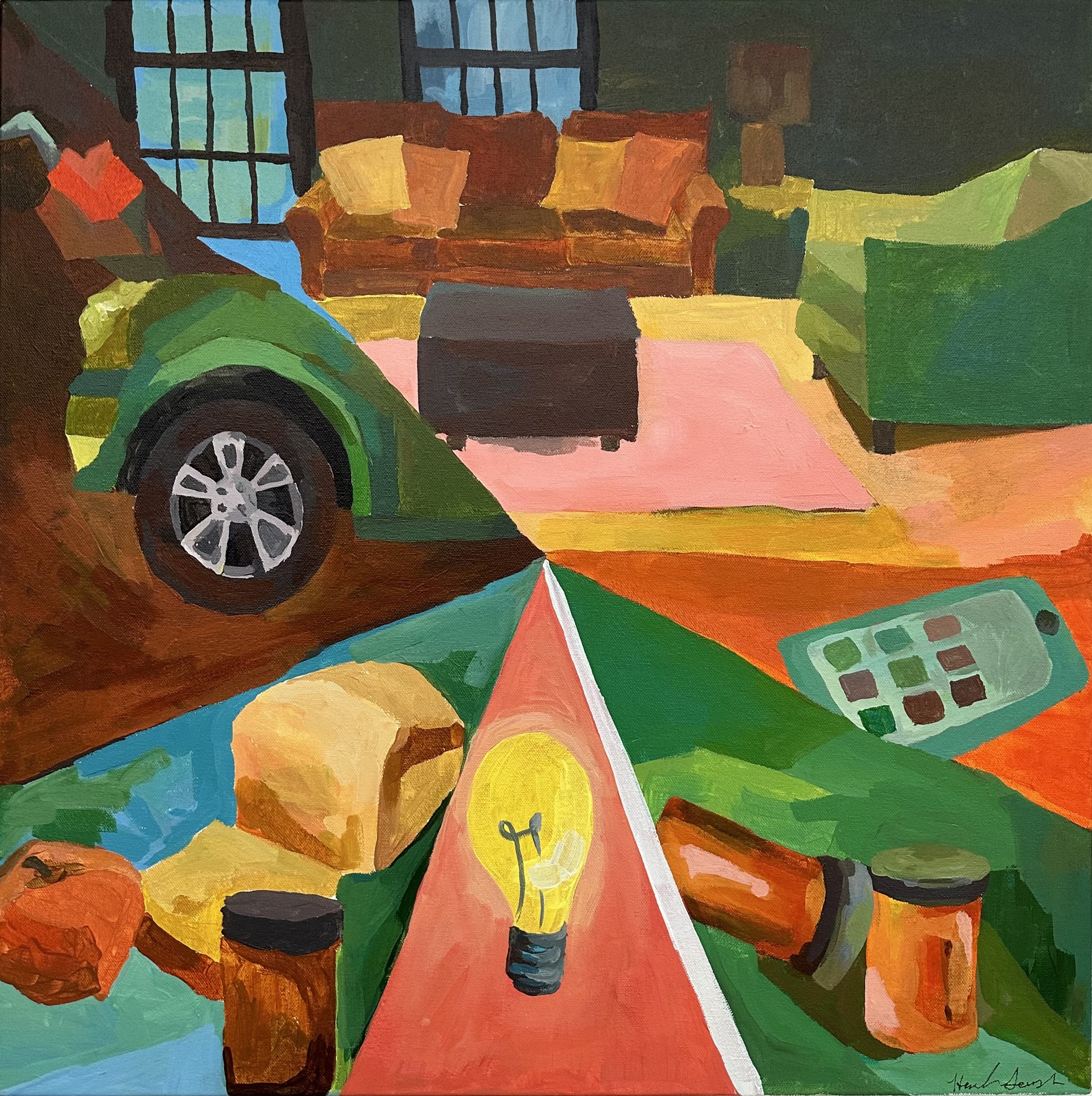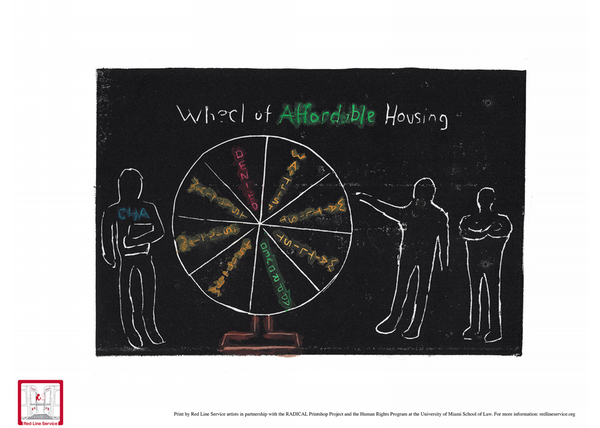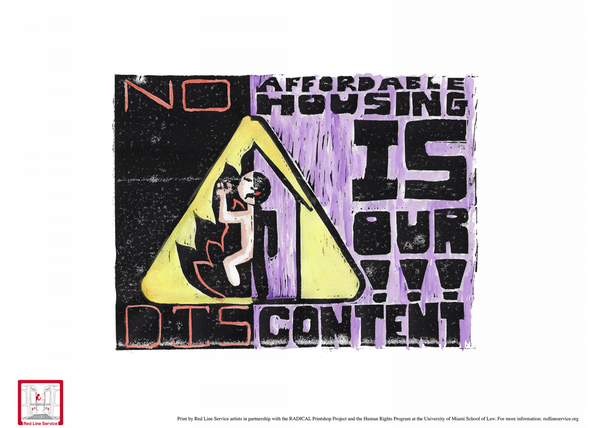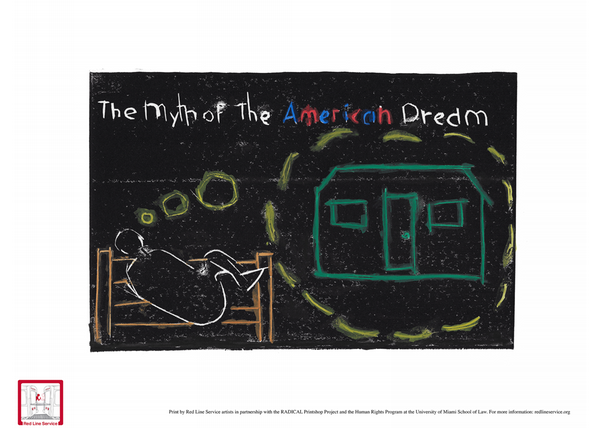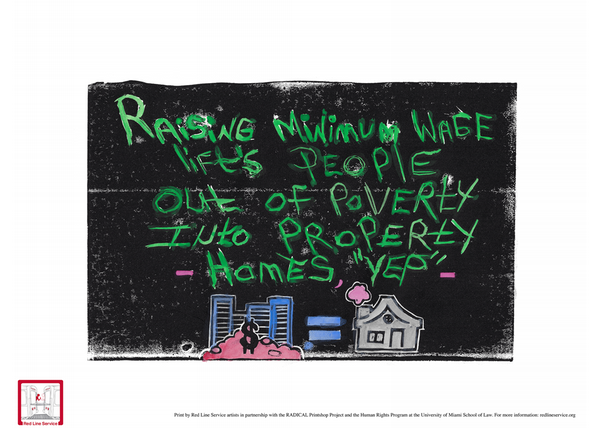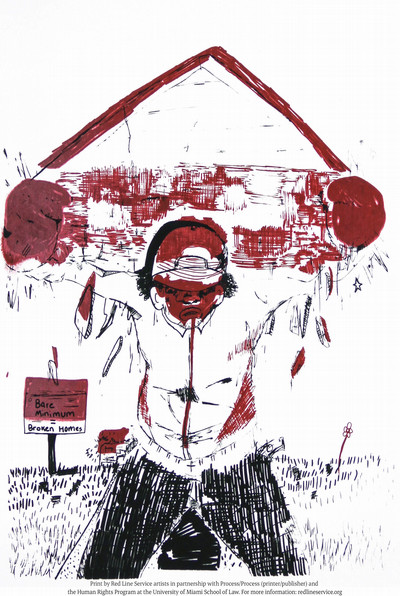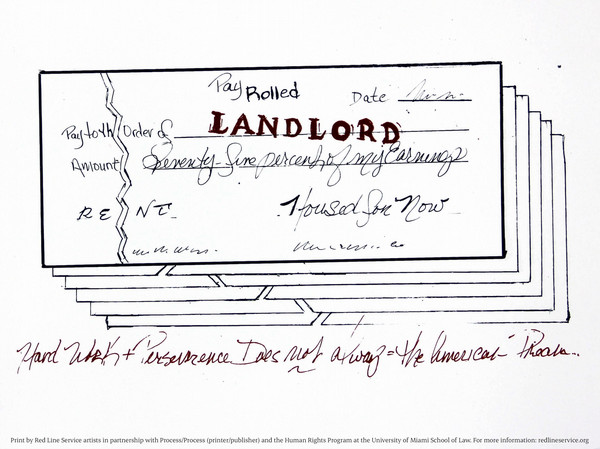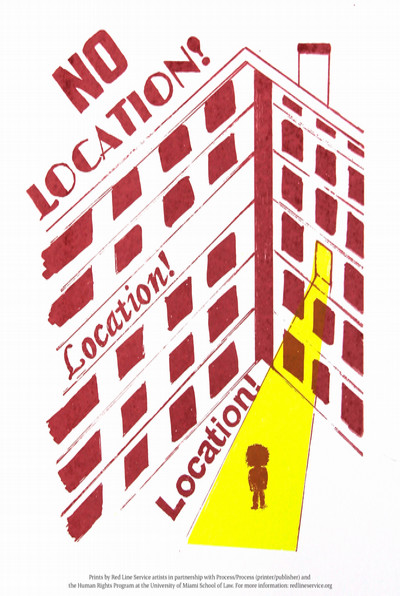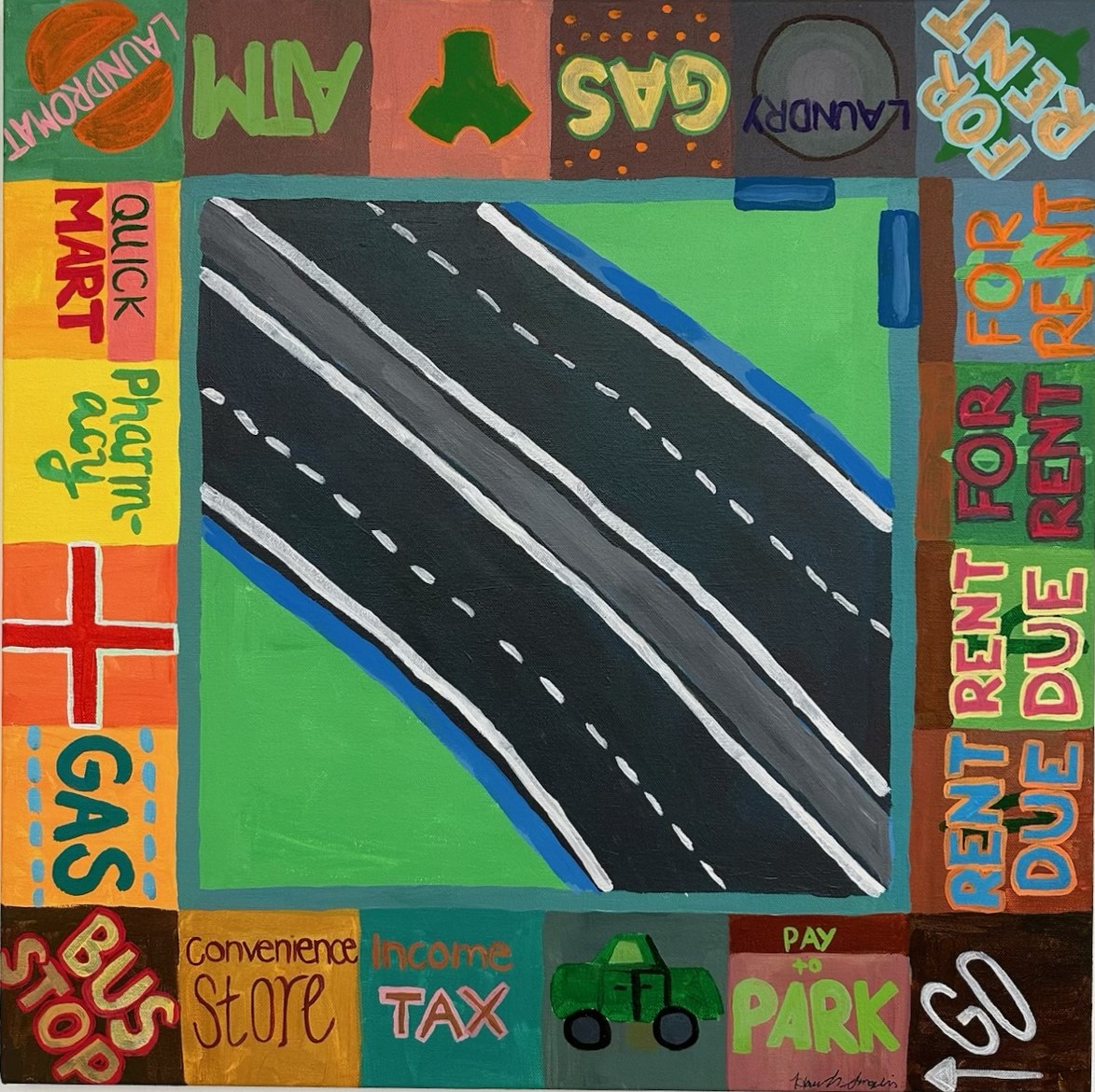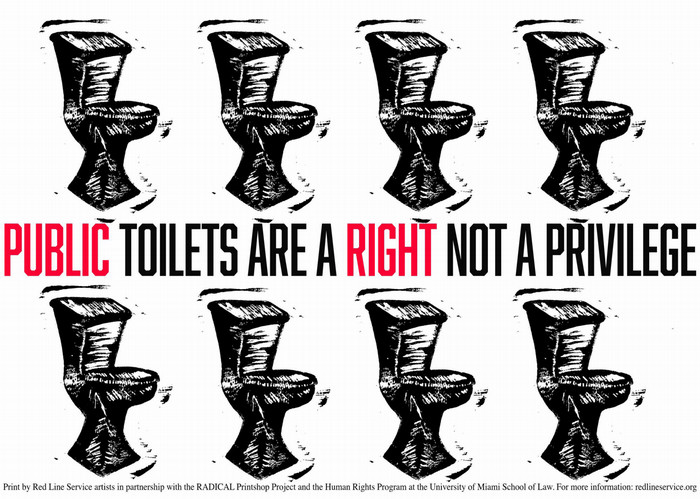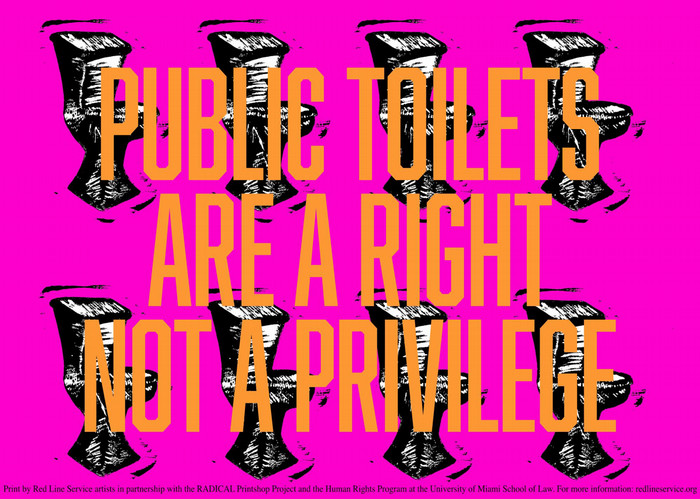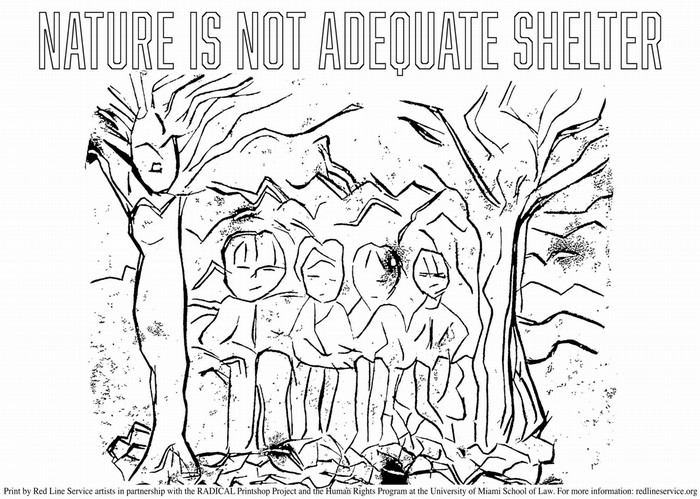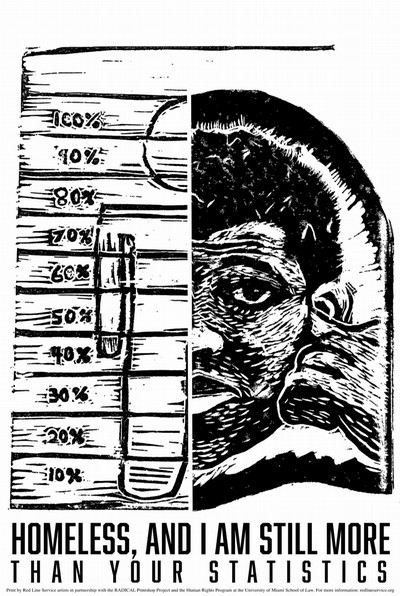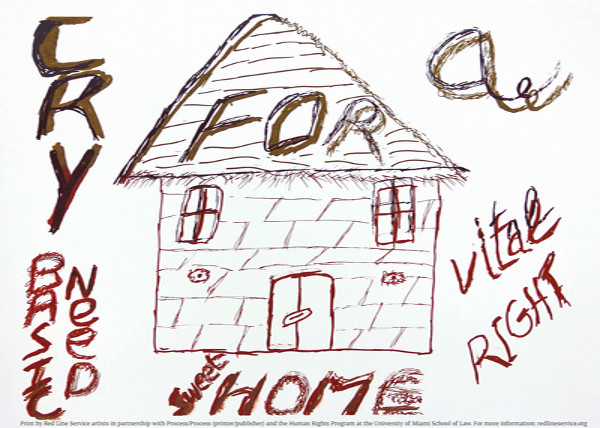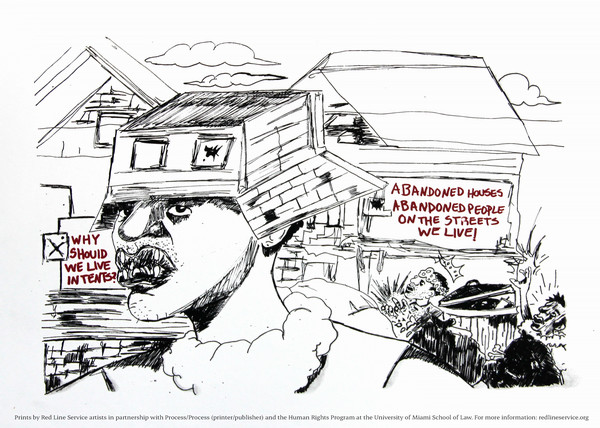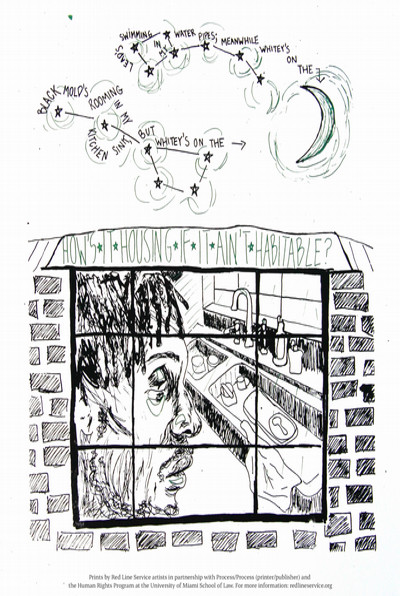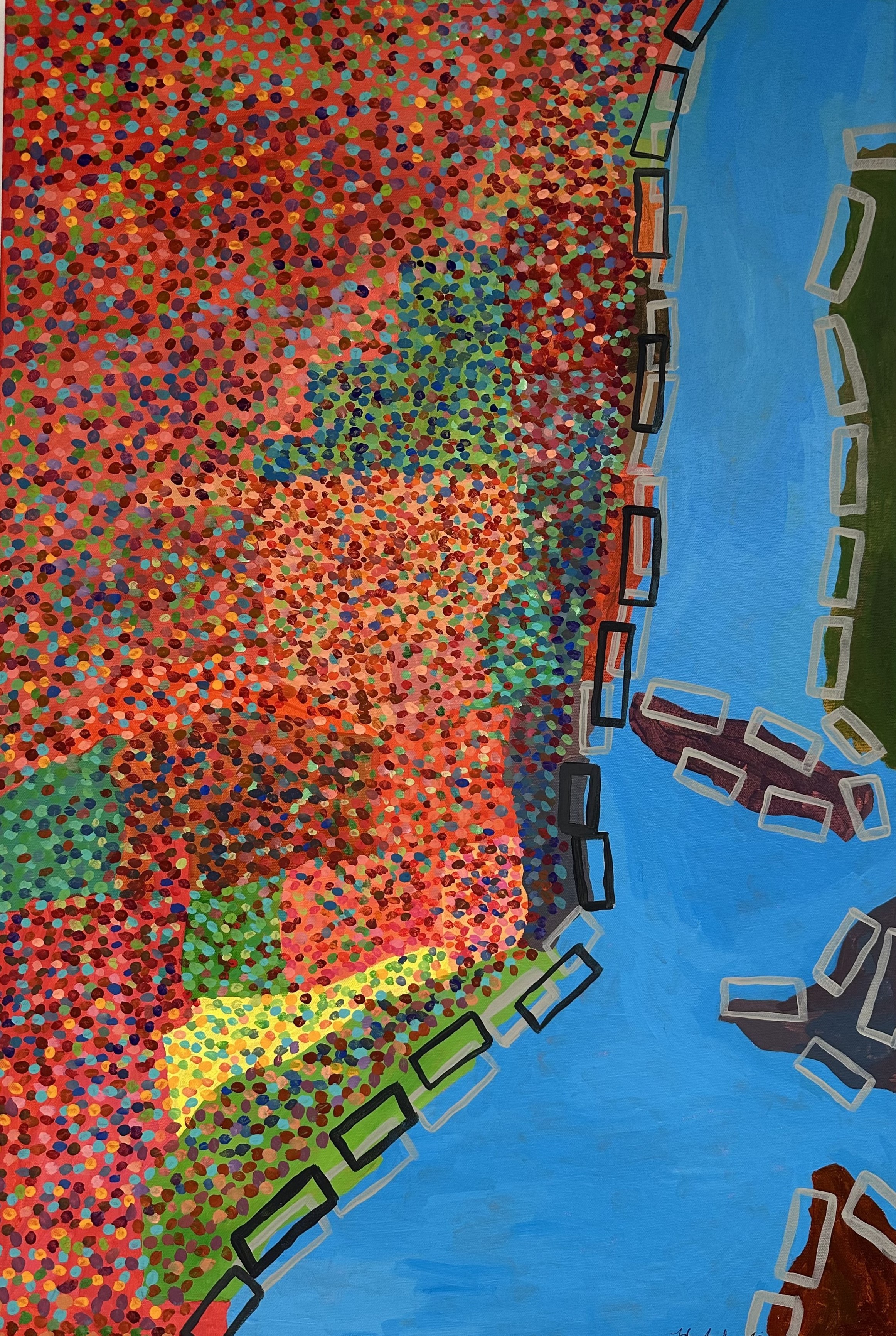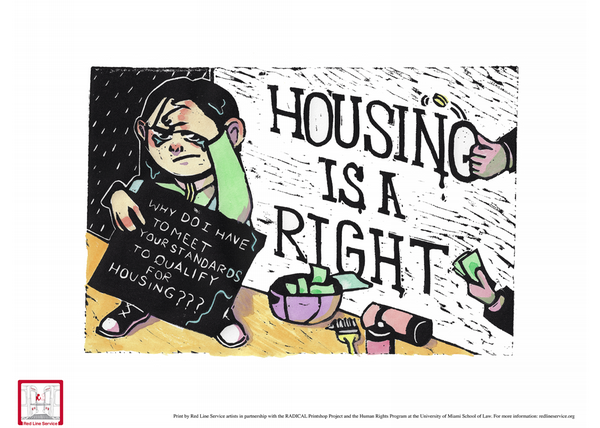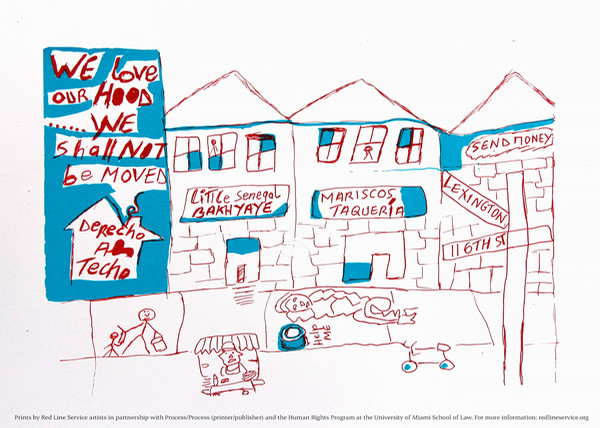Prioritizing disadvantaged groups and ensuring they have full and sustainable access to adequate housing.
A Home Changes Everything by Tina F, Red Line Service artist
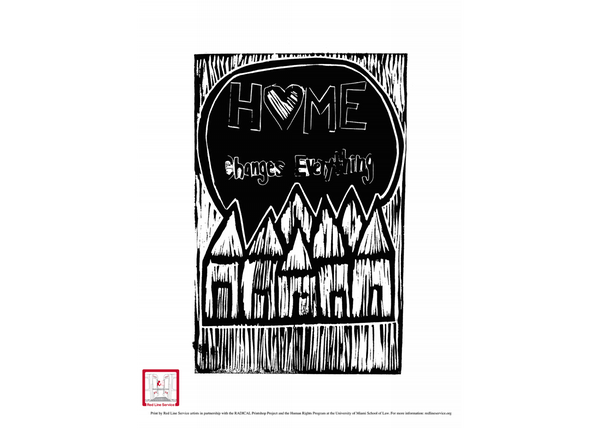
Tina F brings to the fore the way housing changes everything. Without it, everything is harder: working, focusing on mental health, focusing on physical well-being, building relationships, and feeling a sense of belonging, to name a few of the barriers that rob people experiencing houselessness of humanity.
Red Line Service is a community of artists with lived experience of being unhoused - for more information: Red Line Service
Download & Share
Red Tape, by Dave Scott, Red Line Service artist
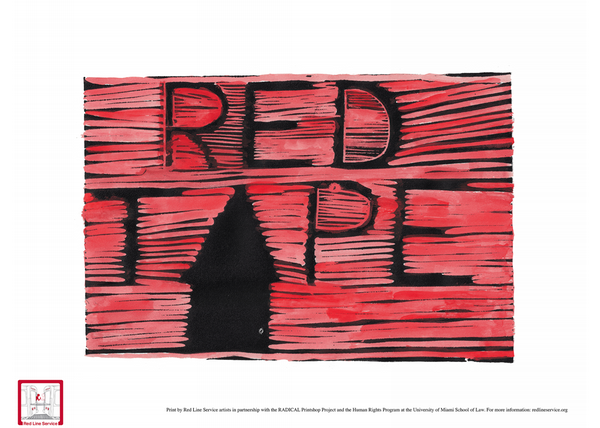
Red Tape points to the enormous barriers for people seeking affordable housing in the U.S., including long waitlists, restrictions on the application process, hurdles to qualifying, as well as the proscriptive rules of management, and lack of recourse for subpar accommodations, all of which make it difficult to work, live and thrive.
Red Line Service is a community of artists with lived experience of being unhoused - for more information: Red Line Service
Download & Share
Never-Ending Lottery I and Never-Ending Lottery II, by Tina F, Red Line Service artist

In her pendant, Never-Ending Lottery I and Never-Ending Lottery II, Tina F demonstrates the contingent, arbitrary, chance-based system of securing affordable housing in the U.S. It also points to the exhaustion of the search process itself.
Red Line Service is a community of artists with lived experience of being unhoused - for more information: Red Line Service
Download & Share
Change the Game by Dave Scott, Red Line Service artist
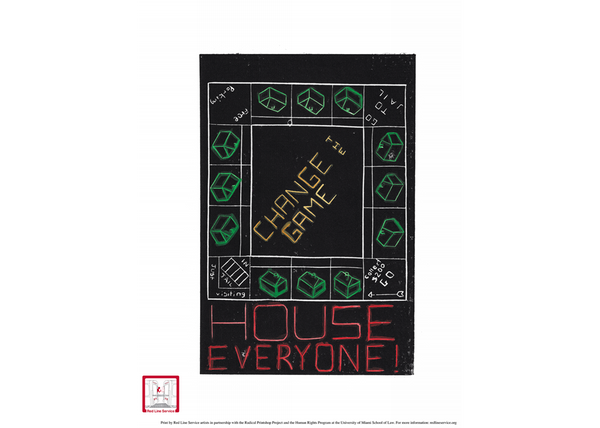
Change the Game explores the fundamental tension between seeing housing as a real estate, income-generating opportunity, and seeing it as a human right. It asks us to consider the barriers for people seeking housing, and what it would look like if we prioritized people over profit.
Red Line Service is a community of artists with lived experience of being unhoused - for more information: Red Line Service
Download & Share
He Ain't Heavy, He's My Brother by Deborah Awwad, Red Line Service artist
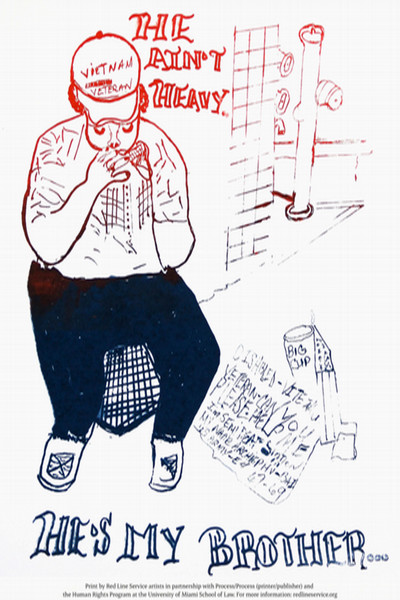
Awwad is a talented visual artist and singer. Here she combines her two loves by using the famous 1969 song by the Hollies, He Ain’t Heavy, He’s My Brother (recorded a year later by Neil Diamond) to think about why particularly disadvantaged groups, here a senior who is also a Vietnam veteran, is living on the street. The beauty of the solidarity expressed here, by a disabled artist living with housing and food insecurity, is a call to action for everyone to care for one another.
Red Line Service is a community of artists with lived experience of being unhoused - for more information: Red Line Service
Download & Share
Accessible Housing is Out of Order by Deborah Awwad, Red Line Service artist
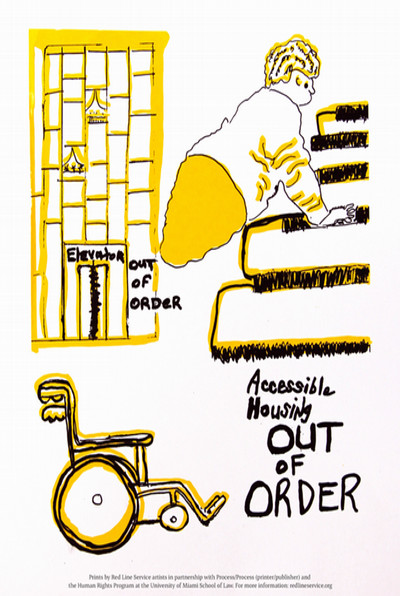
Deborah Awwad tackles the problem of accessibility in high rise subsidized housing, when there are insufficient funds for maintaining infrastructure, like elevators.
Red Line Service is a community of artists with lived experience of being unhoused - for more information: Red Line Service
Download & Share
The Keys to Adequate Housing by Marketta Sims, Red Line Service artist
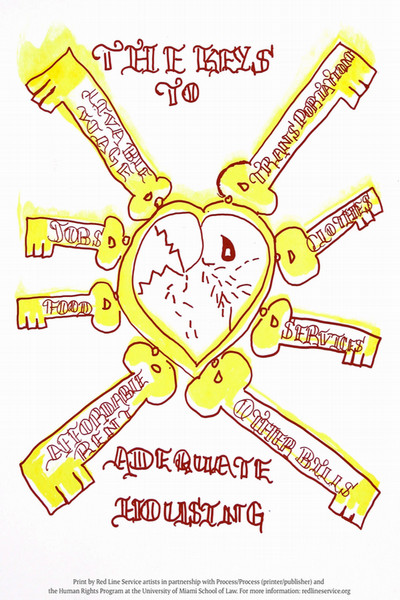
Sims identifies the factors that have served as barriers to her being able to secure and retain adequate housing. These hew closely to the seven dimensions of the UN Human Right to Adequate Housing.
Red Line Service is a community of artists with lived experience of being unhoused - for more information: Red Line Service
Download & Share




